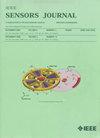A Few-Shot Domain Class Incremental Motor Fault Diagnosis Method With Dynamic Anchor Prototyping
IF 4.3
2区 综合性期刊
Q1 ENGINEERING, ELECTRICAL & ELECTRONIC
引用次数: 0
Abstract
Domain incremental class learning has been studied in the fault diagnosis of motors and other mechanical equipment. However, in domain-incremental few-shot scenarios, existing incremental methods, troubled by feature confusion and overfitting, lead to low fault-classification accuracy of mechanical systems under dynamic conditions and fail to meet the need for real-time monitoring of operating-condition switches. Therefore, this article proposes a few-shot domain class incremental motor fault diagnosis method with dynamic anchor prototyping (DAP). In the initial training stage, the anchor loss constrains intra-class feature compactness. Meanwhile, a domain-decoupled and class-separable feature space is built to suppress catastrophic forgetting from old-new knowledge confusion in the incremental stage. In the incremental stage, a dynamic class prototype classifier is designed to adaptively align few-shot features based on the initial domain pre-training parameters to achieve efficient extraction of cross-domain key discriminative features without back-propagation iterations, which significantly reduces the training time. The motor fault diagnosis experimental results demonstrate that the proposed method achieves higher accuracy with the lower forgetting rate in comparison to traditional incremental learning methods.基于动态锚定原型的少弹域类增量电机故障诊断方法
领域增量类学习在电机和其他机械设备的故障诊断中进行了研究。然而,在域增量少弹场景下,现有增量方法存在特征混淆和过拟合的问题,导致机械系统在动态条件下的故障分类精度较低,不能满足工况切换实时监测的需要。为此,本文提出了一种基于动态锚定原型(DAP)的少次域类增量电机故障诊断方法。在初始训练阶段,锚损失制约了类内特征的紧密性。同时,建立了一个领域解耦、类别可分的特征空间,以抑制增量阶段因新旧知识混淆而导致的灾难性遗忘。在增量阶段,基于初始域预训练参数,设计动态类原型分类器自适应对齐少镜头特征,实现跨域关键判别特征的高效提取,无需反向传播迭代,显著缩短了训练时间。电机故障诊断实验结果表明,与传统的增量学习方法相比,该方法具有较高的准确率和较低的遗忘率。
本文章由计算机程序翻译,如有差异,请以英文原文为准。
求助全文
约1分钟内获得全文
求助全文
来源期刊

IEEE Sensors Journal
工程技术-工程:电子与电气
CiteScore
7.70
自引率
14.00%
发文量
2058
审稿时长
5.2 months
期刊介绍:
The fields of interest of the IEEE Sensors Journal are the theory, design , fabrication, manufacturing and applications of devices for sensing and transducing physical, chemical and biological phenomena, with emphasis on the electronics and physics aspect of sensors and integrated sensors-actuators. IEEE Sensors Journal deals with the following:
-Sensor Phenomenology, Modelling, and Evaluation
-Sensor Materials, Processing, and Fabrication
-Chemical and Gas Sensors
-Microfluidics and Biosensors
-Optical Sensors
-Physical Sensors: Temperature, Mechanical, Magnetic, and others
-Acoustic and Ultrasonic Sensors
-Sensor Packaging
-Sensor Networks
-Sensor Applications
-Sensor Systems: Signals, Processing, and Interfaces
-Actuators and Sensor Power Systems
-Sensor Signal Processing for high precision and stability (amplification, filtering, linearization, modulation/demodulation) and under harsh conditions (EMC, radiation, humidity, temperature); energy consumption/harvesting
-Sensor Data Processing (soft computing with sensor data, e.g., pattern recognition, machine learning, evolutionary computation; sensor data fusion, processing of wave e.g., electromagnetic and acoustic; and non-wave, e.g., chemical, gravity, particle, thermal, radiative and non-radiative sensor data, detection, estimation and classification based on sensor data)
-Sensors in Industrial Practice
 求助内容:
求助内容: 应助结果提醒方式:
应助结果提醒方式:


